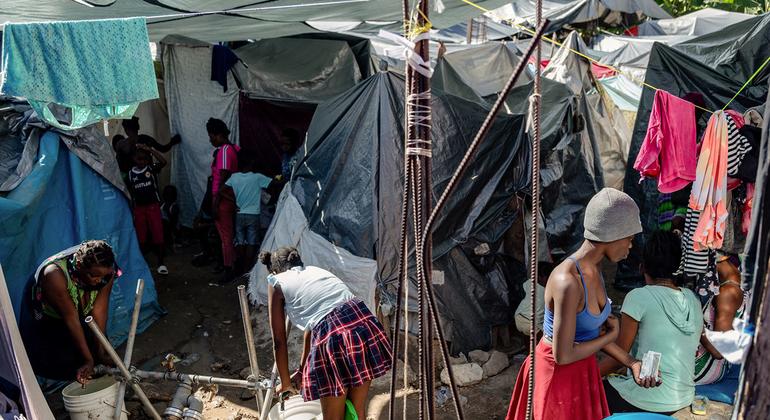The situation in Haiti continues to deteriorate alarmingly, warning that the country could be reaching a point of no return. Maria Isabel Salvador, the UN special representative in Haiti, made this declaration during a session of the Security Council where she highlighted the severe humanitarian and security crisis facing the Caribbean nation. Since January, criminal groups have intensified their attacks, openly defying the government’s authority and expanding their control over territories that were previously considered safe.
The unrest has spread to areas like Delmas, Pétion-Ville, and downtown Port-au-Prince, even reaching the departments of Ouest, Centre, and Artibonite. One of the most concerning events was the takeover of the city of Mirebalais, where over 500 prisoners managed to escape in what has become the fifth prison riot in less than a year.
Salvador emphasized that the level of violence has surpassed the capabilities of the Haitian National Police, even with the support of the Armed Forces and the Multinational Security Assistance Mission. In the months of February and March, over 1,000 people were killed, and at least 60,000 were forced to flee their homes due to violence, exacerbating the humanitarian crisis affecting over a million people.
In the face of institutional collapse, citizens have begun organizing to protect their communities, while thousands have taken to the streets demanding more effective action from authorities. Salvador noted that, although a revised budget was approved in April to strengthen the police and military, Haitian leaders have acknowledged that this will not be enough without urgent international support.
The humanitarian situation in Haiti is critical. Cholera outbreaks and gender-based violence have become widespread issues, especially in displaced settlements, and insecurity has led to the closure of 39 health centers and over 900 schools in Port-au-Prince. The representative urged states to support the Humanitarian Response Plan 2025 and reaffirmed the UN’s commitment to providing life-saving assistance, with a particular focus on women, girls, and children, as well as promoting social peace through government initiatives.
Despite the challenges, UN agencies continue to work on the ground, but the isolation of the capital, blocked by land and without commercial flights since November, complicates aid delivery. The organization has maintained a minimal presence, although Salvador warned that without predictable and sufficient funding, even this limited operation is at risk.
In the political sphere, Salvador reported that, despite the chaos, the transitional government is still organizing elections for February 2026, with constitutional consultations and logistical preparations underway. However, the security situation raises serious doubts about the feasibility of this electoral process. The UN envoy concluded her intervention by requesting greater support from the Security Council for the Multinational Security Mission and the implementation of effective sanctions. “Haiti is at a crucial moment. Without concrete and timely international assistance, the country could descend into total chaos,” she emphasized.
via: MiMub in Spanish










